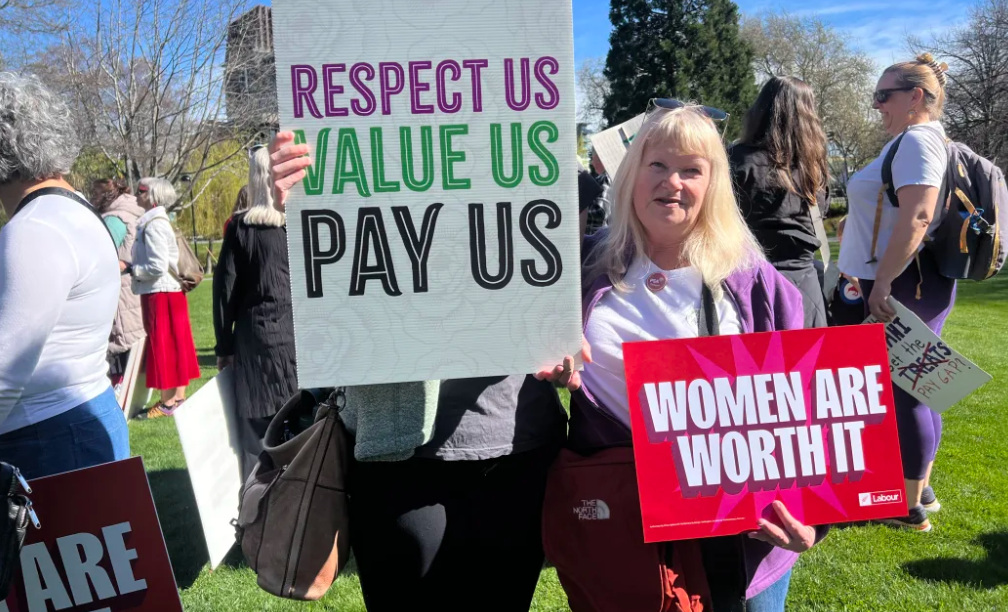
There are a raft of events on from Whangārei to Invercargill, including a march in Tāmaki Makaurau Auckland, community gatherings in Whanganui and a BBQ in Ōtepoti Dunedin.
In May this year laws were passed under urgency, cancelling dozens of pay equity claims relating to mostly female-dominated jobs.
Christchurch protester Sara Eady said people deserved equal pay for doing jobs requiring similar levels of skills.
"It was outrageous the way that the decision was made behind closed doors and under cover of darkness.
"And it's indicative of this government that don't want us to know what they're doing to save $12 billion to make it look like they're doing a good job - and actually they're just sort of robbing Peter to pay Paul."
There were protests against the changes in May when the changes were rushed into law.
They made it harder to make a case for workers in professions dominated by women to have their pay increased in line with equivalent jobs done by men, stopping 33 existing claims in their tracks.
One of the marchers in Christchurch, Lynn Broadbent, was part of a group granted pay equity for social workers.
But she said with the law change, their wages were now falling behind.
"The admin staff who also had claims in, who are at present being paid under the living wage, our company has pledged to keep that living wage - but we feel that that shouldn't have had to go to negotiation."
Workplace Relations Minister Brooke van Velden said at the time that under the previous rules, claims were "able to progress without strong evidence of undervaluation", or without proving the difference in pay was "due to sex-based discrimination or other factors".
The changes would not only make the pay equity scheme "workable and sustainable", but "significantly reduce costs to the Crown" by about $2.7 billion a year, she said.
Prime Minister Christopher Luxon denied the new regime was effectively "cutting pay for women".
Saturday's nationwide day of action comes a day after the anniversary of women winning the right to vote in 1893.














